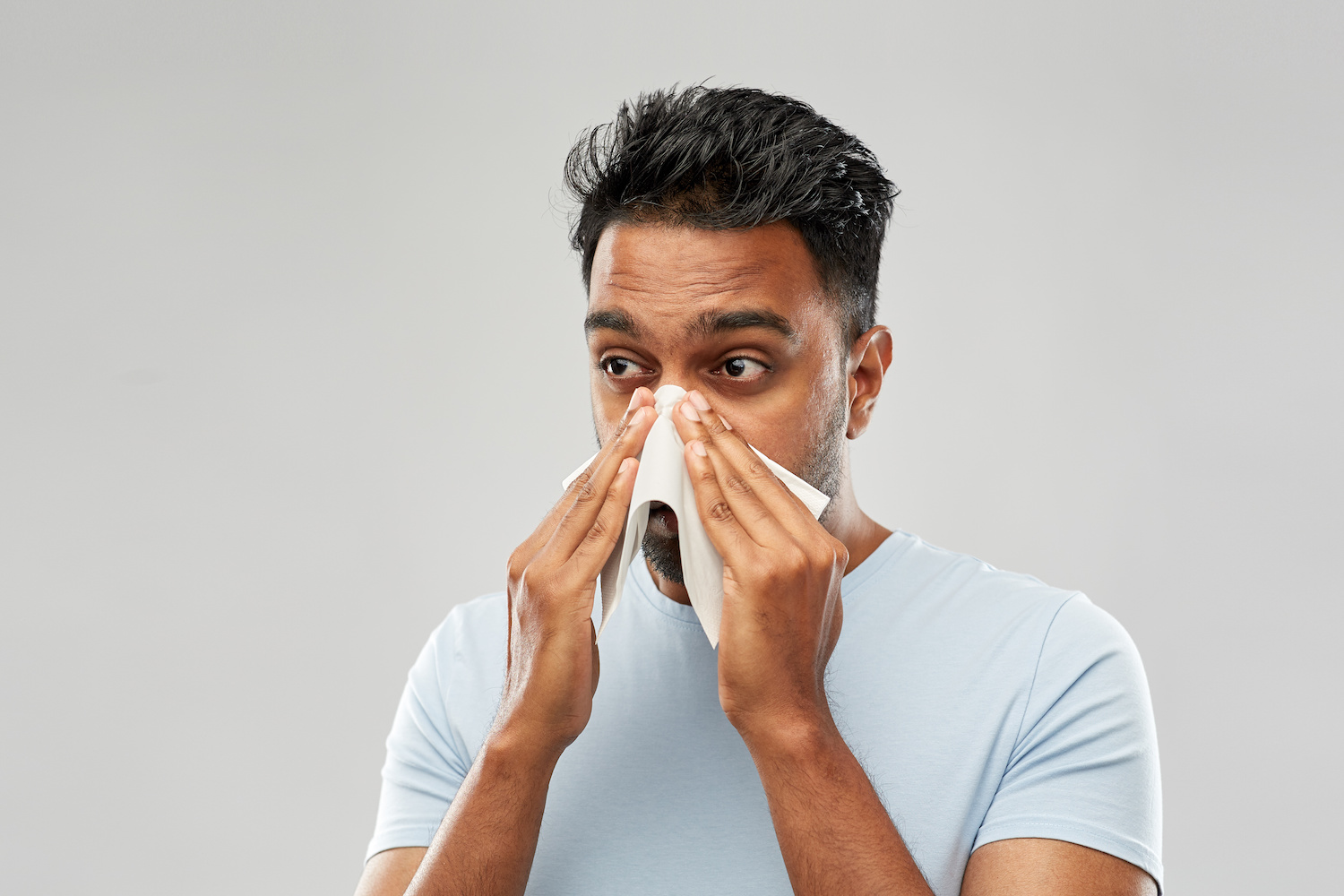Do you ever feel like you suffer from sneezing, a drippy nose, or congestion more than the average person? If so, you may be suffering from rhinitis. There are two main types of rhinitis, allergic and nonallergic.
With allergic rhinitis, the trigger is typically identifiable by testing and can be either indoor (cat, dog, dust mite, molds), outdoor (trees, grass, weeds, molds), or both. With non-allergic rhinitis, though, there’s no apparent cause. Let’s take a deeper look at rhinitis and what it is.
What Is Rhinitis?
Rhinitis is a reaction that causes sneezing, itching, runny nose, and nasal congestion. Most types of rhinitis are caused by inflammation and are associated with symptoms in the eyes, ears, or throat.
As mentioned above, there are two main types of rhinitis. The most common is allergic rhinitis, which occurs when allergens in the air cause your body to release histamine. The histamine causes swelling, itching, and the buildup of fluids in the nasal passages. With allergic rhinitis, avoidance measures, non-sedating antihistamines and intranasal steroid sprays can help.
Nonallergic rhinitis, on the other hand, is harder to deal with because pinpointing the cause is difficult and avoidance measures are near to impossible. Symptoms can include runny nose, congestion, and post-nasal drip and is usually not associated with itchy eyes or nose. In general, the causes of nonallergic rhinitis include extreme temperature changes, barometric pressure shifts, strong scents and odors, exposure to irritants (such as pollution), or eating spicy foods.
How to Treat Chronic Rhinitis?
Determining the best course of action to deal with chronic rhinitis depends on what type of rhinitis you have.
For example, if you have allergic rhinitis, getting allergy shots is one of the best courses of action. These shots can relieve allergy symptoms and reduce your need to take over-the-counter allergy medications.
For chronic non-allergic rhinitis, nasal antihistamine sprays and saline rinses can help control symptoms.
When Should You See a Doctor?
If your symptoms are severe, chronic, and/or cause quality of life issues, you should seek medical attention. A lot of people reach for over-the-counter (OTC) medications but oftentimes don’t get the relief they are looking for. It might also be wise to seek a second opinion from a medical professional if the OTC medications you are using are causing lots of side effects (i.e. sedation with Benadryl use) so that other more tolerable treatment options can be discussed.
Visit Bernstein Allergy for Relief
If you’re sick of using over-the-counter medications to deal with rhinitis, visit Bernstein Allergy. We can help you find the root cause of your rhinitis and put a quick stop to it. Call us today to schedule an appointment.

